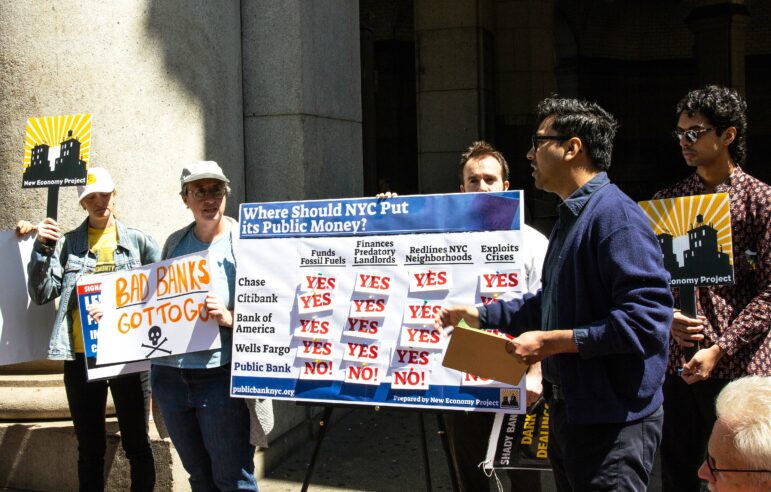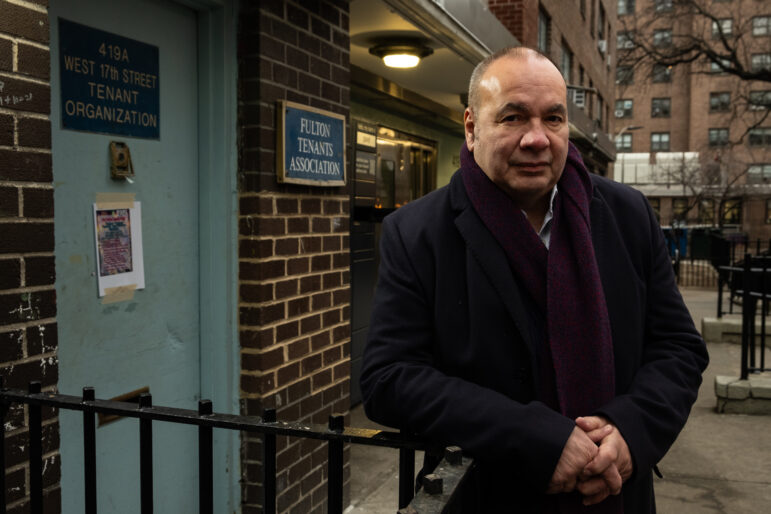
Photo by: Edward Reed/City Hall
ACS Commissioner John Mattingly. Earlier this year ACS embarked on an evolution–moving away from foster or group care and toward keeping kids in their homes or close to them.
The Administration for Children’s Services is calling for a “do-over” of the process it undertook last year to implement a sea-change in child welfare policy.
Earlier this year ACS embarked on an evolution–moving away from foster or group care and toward keeping kids in their homes or close to them. That shift was embodied in a request for proposals, or RFP, issued last year that was supposed to govern the contract awards ACS made in May. Those awards sharply decreased contracts for many agencies with long-established connections to ACS –with little clarity on how proposals were vetted and decisions made.
Wednesday, in a late-day email to children’s service agencies citywide, ACS announced a drastic shift: It will “rescind its prior recommendations” for awards in a broad swath of categories, because “re-evaluation and re-scoring” of the child welfare RFP “is warranted.”
Advocates say that the step back from ACS’ stated contracts is highly unusual. What some characterize as “shock waves” in the wake of ACS’ back-pedaling may represent an opportunity to restore funding or an invitation for lawsuits against ACS challenging its methods and practices.
ACS spokeswoman Laura Postiglione confirmed that ACS will “rescind its recent Recommendations for Awards” to re-evaluate how and why decisions were made.
What this sudden change represents for the 16,000 children in foster care and the 257 children a day who are reported as abused or neglected is not yet clear.
In its drive to de-institutionalize foster care, ACS aims to “push everyone down a level” in the child-welfare hierarchy, says Nicole Lavan, senior policy officer at the Federation of Protestant Welfare Agencies: Children who in previous years might have lived in a group home will now move to family foster care, say. Those who would have been foster children might stay with their family and receive preventive services. Community-based care means that children may still attend local schools and remain connected to important relationships within the community.
ACS’ new focus on keeping children better connected to their families has wide support among service providers and advocates. But some of those same stakeholders have raised concerns about how that vision is being executed. Budget reductions–the recently adopted budget cuts ACS’s expenses by $234 million and it’s contracts by $27 million–are one concern. But the process of awarding new contracts also came under fire.
The new RFP, issued in early 2009, led to an 18-month process to evaluate current providers and identify new ones. In total, 67 agencies were awarded child welfare contracts; 27 won the rights to provide family foster care; with an additional 20 residential care providers and 59 preventive-services providers included in the contract awards, which were announced in May, 2010.
But many agencies that had solid ratings on ACS Scorecards, an agency measure of quality, did not get contracts under the new RFP, which includes 700 pages of particulars. “Nobody understands the criteria, or how contracts were awarded,” Lavan told City Limits.
“There was a lot of confusion over the RFP process,” said Council of Family and Child Caring Agencies communications director Edith Holzer. “They [ACS] had to call it back.”
ACS declined to respond to questions about how the RFP was scored.








